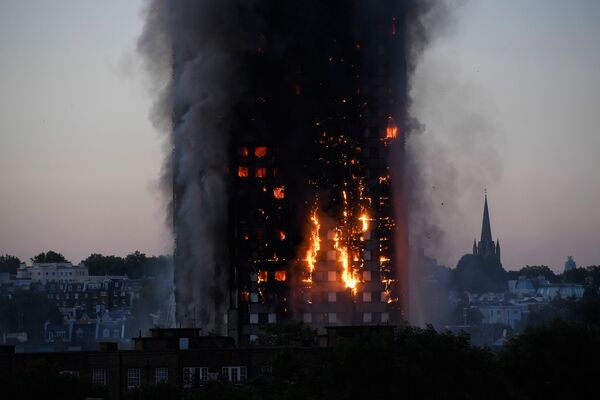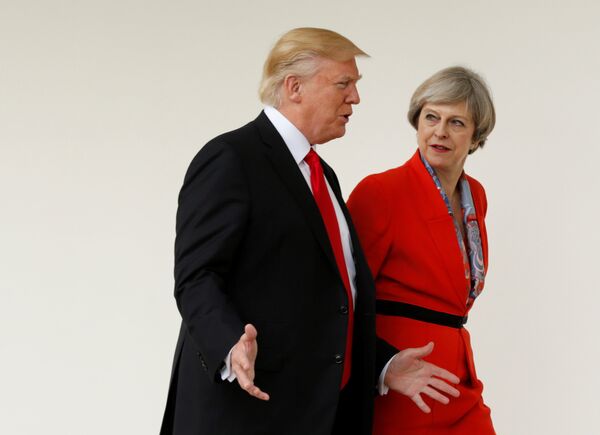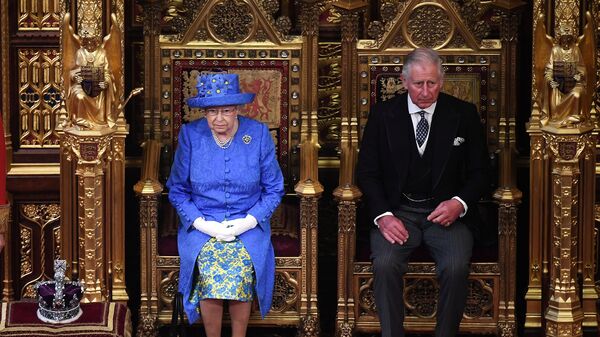Prime Minister Theresa May, bereft of a House of Commons majority, now faces a critical test of her authority. If she cannot get enough votes in the House of Commons to support her program, the government will almost certainly fall.
The week commencing June 19 brims with challenges for May — the commencement of Brexit talks, ongoing discussions with the Democratic Unionist Party (DUP) on an informal coalition agreement, and the Queen's Speech. The latter is arguably the most crucial.
The Queen's Speech is typically little more than a formality — a regal ritual dating back to the 16th century, in which the monarch reads out the government's legislative agenda for the next year, and MPs rubber stamp the program.
However, this year the process has been injected with a deep and cohering sense of uncertainty — without a majority, should May's plans not receive sufficient parliamentary support, her brief premiership will be terminated and Labour will have an opportunity to form a government.
The Queen has delivered the #QueensSpeech in @UKHouseofLords. Read the speech in full: https://t.co/2wRLeK4ubq pic.twitter.com/vdHFGaEGHe
— UK Prime Minister (@Number10gov) June 21, 2017
The Speech read, the Queen left Parliament, and headed to Royal Ascot. As rebellious Labour MP Dennis Skinner noted, as an equine enthusiast, it's likely to be an engagement Her Majesty will enjoy greatly prefer to the morning's proceedings.
Dennis Skinner's heckle: "Get your skates on!" pic.twitter.com/WHhP4Frurb
— Esther Webber (@estwebber) June 21, 2017
For their part, MPs will spend the rest of the working week debating and voting on its proposals, and tabling amendments. The most pivotal votes are likely to take place June 29.
Passing
If May's legislative agenda is to succeed, all Conservative MPs must back it, along with eight other MPs. Corbyn, who is 64 seats short of a majority in Parliament, has made clear his party will vote against the Speech, particularly against any cuts to public services and austerity measures — and said he "stands ready" to govern.
While no official deal has yet been struck between the Conservatives and the DUP, the latter is likely to make up the numbers — on top of certain ideological commonalities, the staunchly Protestant party would undoubtedly never countenance giving Labour leader Jeremy Corbyn, a committed supporter of Irish republicanism, the opportunity to form a government. It is perhaps for this reason Conservative spokespeople have said they are "sufficiently confident" they will be able to get the Speech through the Commons.

Similar thought processes no doubt motivate Conservative MPs — while many may have issues with May, and her proposals, the prospect of a Corbyn government is likely to keep them in check.
In any event, the Queen's Speech represented a significant dilution of the Conservative manifesto. Key pledges, including expanding grammar schools and a free vote on restoring foxhunting, were dropped.
Controversial counterterrorism proposals were likewise shelved, and a public inquiry into the Grenfell Tower fire was pledged — alongside plans to rehome those left homeless by the fire "as close as practically possible" to where they lived before.

The speech also suggested US President Donald Trump's planned state visit to the UK has been postponed.

The Queen said the government would also seek to introduce a series of pro-consumer measures, including a planned travel protection bill, intended to revamp consumer regulations, and a long-promised law to crack down on compensation claims for people claiming whiplash injuries following car crashes.

Another law will ban landlords or agents from charging fees to tenants seeking to rent properties in England.
Losing
The 2011 Fixed-Term Parliaments Act states if a government loses any test of parliamentary confidence, political parties in Parliament have 14-days to form a new administration and win a vote of confidence.
If May's Queen's Speech fails, it would mark the first time since 1924, when Stanley Baldwin's King's Speech was voted down and a minority Labour government took power.
Worcs MP and #Conservative prime minister Stanley Baldwin called snap election that backfired-in 1923. Led to 1st minority #Labour govt pic.twitter.com/R60xFDsh63
— Uni Worc History (@uniworchistory) June 9, 2017
Given the lack of historical precedent, it's unclear what would happen during the 14-day period — the government may well resign, giving Labour a chance to cobble together a coalition and hold a vote of confidence.
Alternatively, the Conservatives could try and form another government and win a confidence vote.
If either option fails, another general election will be called — and it would surely spell the end of May, with immense pressure from within her party's ranks to resign.
As the Queen leaves, the parliamentary session starts & both Houses will debate the #QueensSpeech https://t.co/ry1w5BnZfR pic.twitter.com/jja8cR0Yku
— House of Lords (@UKHouseofLords) June 21, 2017
However, complicating the picture, should Labour took office as a minority administration, or head of a brittle multicolor coalition, the FTPA states it could not call an election without seeking parliamentary approval, meaning the party would need two-thirds of all MPs to vote in favour of another election. By definition, this would require support from a large number of Conservative MPs — a highly improbable prospect.



